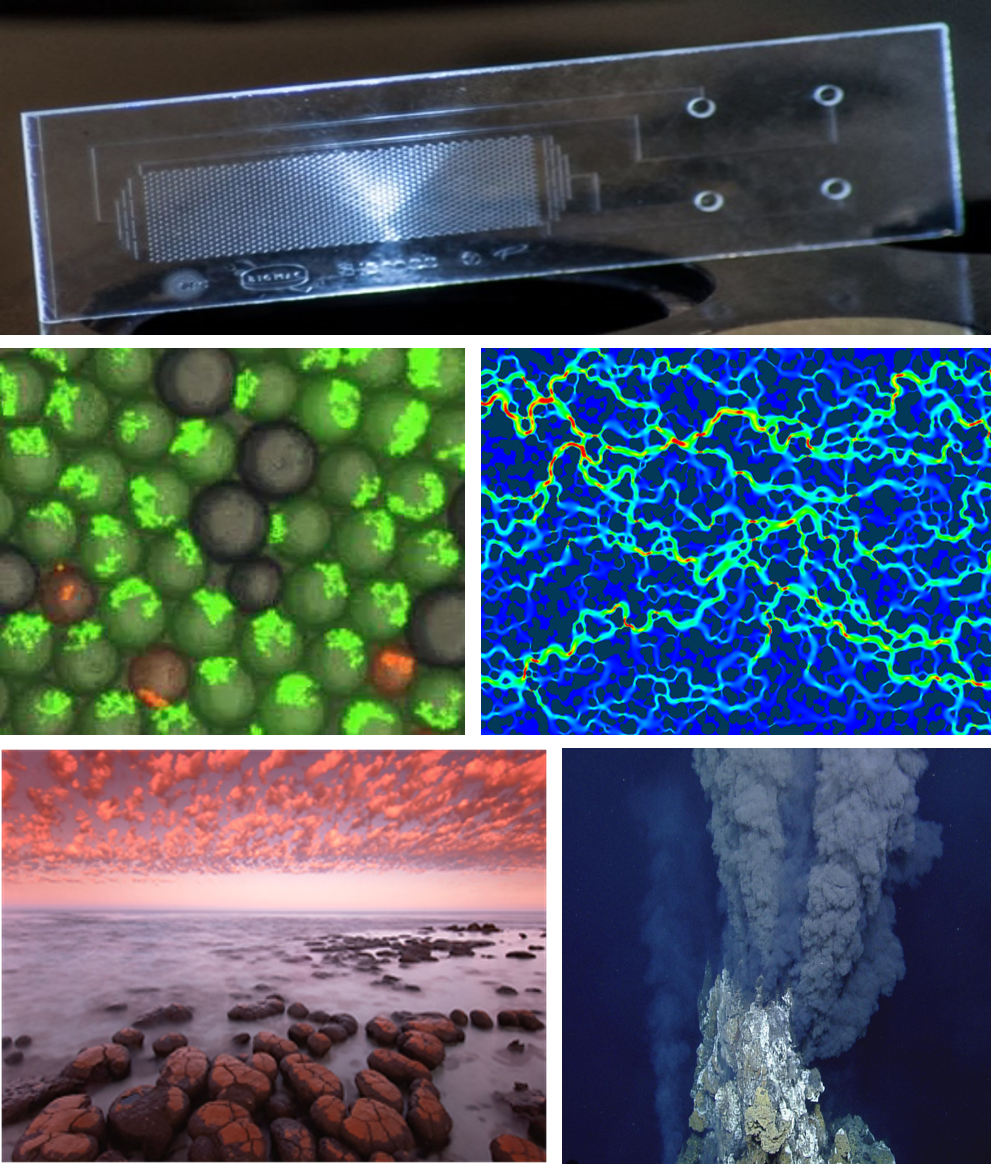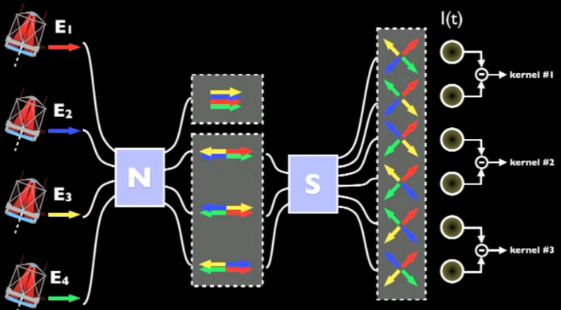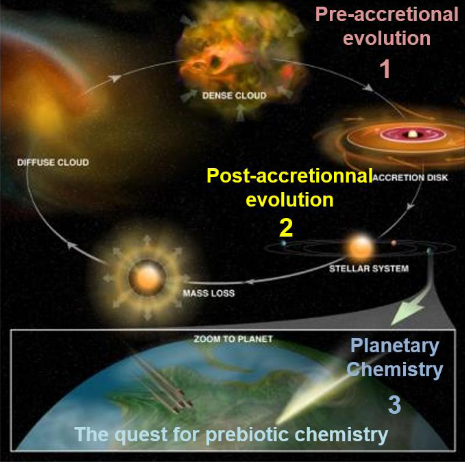
2 years post-doctoral position in analytical chemistry
PIIM Laboratory – Aix-Marseille University
Postée le July 1rst
2 years post-doctoral position in analytical chemistry (low or high-resolution mass spectrometry coupled to liquid chromatography) in the context of extraterrestrial sample analyses and Origins of Life in ASTRO team at the PIIM laboratory of the Aix-Marseille University in France
Since fifteen years, the ASTRO team draws a unique scenario that starts from the primitive dense molecular cloud up to the development of a prebiotic chemistry at the surface of the early Earth. They develop experimental approaches questioning the origin of the organic matter observed in the various interplanetary bodies of our solar system. All these experiments are associated to the development of innovative analytical methodologies to characterize organics and decipher reactivity possibly occurring.
They demonstrated that a part of this matter could be related to the chemistry occurring during the collapse of the native dense molecular clouds and its evolution to a protoplanetary disk. The accretion step could have then led to an incorporation of a fraction of this primitive organic matter in asteroids and comets, where, depending on the body, secondary alterations could have occurred, leading to a new evolution of the organic content. As observed on Earth with the presence of meteorites, the organic content of interplanetary bodies may have been delivered at the surface of the early Earth, 4.3 to 3.8 Go ago. This extraterrestrial organic matter may have been an important reservoir of organic matter that could have played a role in the emergence of life on the early Earth.
Objectives of the scientific project : The objective is to develop new analytical methodologies, under the supervision of Professor Grégoire Danger, for characterizing organic matter in extraterrestrial objects (meteorites, samples from returned missions) and their analogues. These advancements will primarily involve high-performance liquid chromatography coupled with low or high-resolution mass spectrometry to analyze the molecular diversity present within these samples. Additionally, direct infusion into high-resolution mass spectrometry will be utilized to provide an overall assessment of the samples. Moreover, the recruited candidate will support other projects within the team, specifically in liquid chromatography analyses and the development of necessary methodologies. Data treatment implications will also be necessary.
Situation of the position : For the past decade, the ASTRO team at the PIIM laboratory of CNRS/Aix-Marseille University has developed an analytical platform featuring three GC-MS instruments, including a GC-Orbitrap. The team has been extensively engaged in high-resolution mass spectrometry analyses of extraterrestrial samples and their analogues. Currently, the team possesses two high-performance liquid chromatography systems coupled to low-resolution mass spectrometry. Collaborations are in place for liquid chromatography coupled to high-resolution mass spectrometry.
We are seeking a candidate with advanced expertise in high-performance liquid chromatography coupled with mass spectrometry, particularly with a strong background in data analysis related to these techniques.
Administrative information :
– The position is for two years. The funding is part of the MICROFLUIDICS PEPR Origins funding project ANR-22-EXOR-0014.
– Applicants must have a PhD degree in analytical chemistry by the date of appointment.
– The starting date is no later than January 2025.
– Applicants should submit a cover letter, a CV, a statement (2 pages max) explaining interests and qualifications, and if available letters of recommendation.
– Review of applications will begin upon receipt until the position is filled and all applications received by the deadline will receive full consideration.
– Selected applicants will be interviewed. They will have to present their research background and to propose a project in relation with the aim of the current position. The selection of the candidate will be held after these interviews.
Application Deadline : October 1th, 2024
Audition Deadline : October 15th, 2024
Starting date : January 2025
End Date : January 2027
Attention To : Grégoire Danger – Email: gregoire.danger@univ-amu.fr
Gross Salary the first year will depend on the expertise and will be either 31 k€ or 36 k€. From the second year a raise of 300€/month (gross) will be applied. This salary includes standard social security, retirement and unemployment insurance.
Selected references :
1. Molecular diversity and amino acid evolution in simulated carbonaceous chondrite parent bodies, A. Garcia, Y. Yan, C. Meinert, P. Schmitt-Kopplin, V. Vinogradoff, J-C Viennet, L. Remusat, S. Bernard, M. Righezza, L. Le Sergeant d’Hendecourt, G. Danger*, ACS Space and Earth Chemistry, 2024, 8, 606-315
2. Gas chromatography coupled-to Fourier transform orbitrap mass spectrometer for enantioselective amino acid analyses: application to pre-cometary organic analog, A. Garcia, C. Serra, Q. Blancart Remaury, AD. Garcia, M. Righezza, C. Meinert, P. Poinot, G. Danger*. Journal of Chromatography A, 2023, 1704, 464118
3. The transition from soluble to insoluble organic matter in interstellar ice analogs and meteorites, G. Danger*, A. Ruf, T. Javelle, J. Maillard, V. Vinogradoff, C. Afonso, I. Schmitz-Afonso, L. Remusat, Z. Gabelica and P. Schmitt-Kopplin, Astronmy and Astrophysics, 2022, 667, A120
4. Identify Low Mass Volatile Organic Compounds from Cometary Ice Analogs using Gas Chromatography coupled to an Orbitrap mass spectrometer associated to Electron and Chemical Ionizations. T. Javelle, M. Righezza, G. Danger*. Journal of Chromatography A, 2021, 1652, 462343
5. Exploring the link between molecular cloud ices and chondritic organic matter in laboratory. G. Danger*, V. Vinogradoff*, M. Matzka, J-C. Viennet, L. Remusat, S. Bernard, A. Ruf, L. Le Sergeant d’Hendecourt and P. Schmitt-Kopplin. Nature Communication, 2021, 12, 3538
6. Diversity of chondritic organic matter probed by ultra-high resolution mass spectrometry. B. Laurent*, J. Maillard, C. Afonso, G. Danger, P. Giusti and L. Remusat. Geochemical Perspectives Letters, 2022, 22, 31-35
7. The challenging detection of nucleobases from pre-accretional astrophysical ice analogs. A. Ruf, J. Lange, B. Eddhif, C. Geffroy, L. Le Sergeant d’Hendecourt, P. Poinot, G. Danger*, The Astrophysical Journal Letters, 2019, 887, L31
8. The Prebiotic C-Terminal Elongation of Peptides can be Initiated by N-Carbamoyl Amino Acids. N. Abou Mrad, G. Ajram, J-C Rossi, L. Boiteau, F. Duvernay, R. Pascal and G. Danger*. Chemistry – A European Journal, 2017, 23, 7418-7421
9. 5-(4H)-Oxazolones as Effective Aminoacylation Reagents for the 3′-Terminus of RNA. Z. Liu, C. Hanson, G. Ajram, L. Boiteau, J-C Rossi, G. Danger, R. Pascal* Synthetic Letters, 2017, 28, 73-77
10. Characterization of interstellar/cometary organic residue analogs using very high resolution mass spectrometry, G. Danger*, F-R. Orthous-Daunay, P. de Marcellus, P. Modica, V. Vuitton, F. Duvernay, L. Le Sergeant d’Hendecourt, R. Thissen, and T. Chiavassa, Geochimica & Cosmochimica Acta, 2013, 118, 184-201

